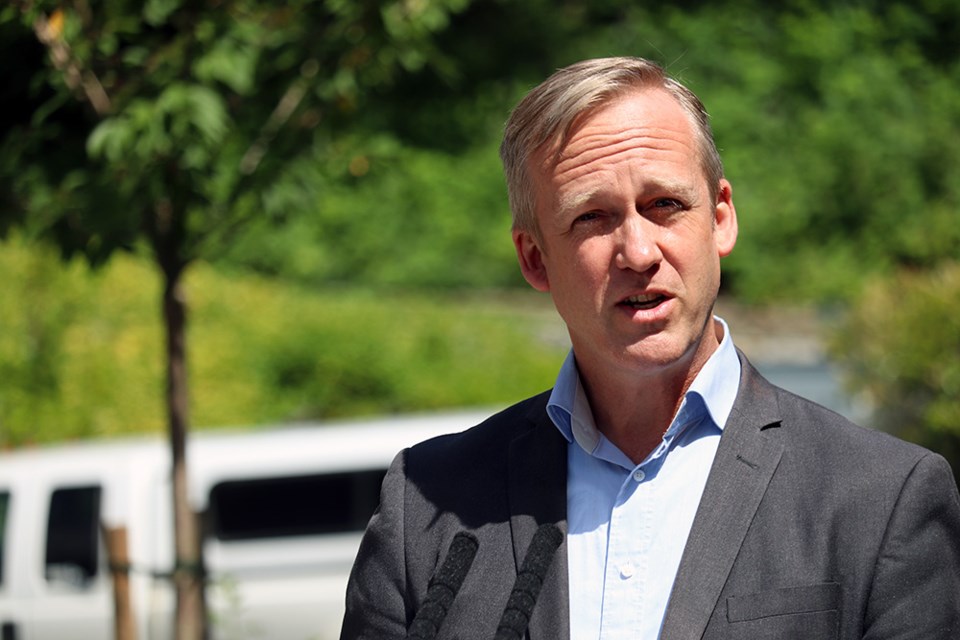There is no doubt that our Provincial Government of BC is taking bold steps on housing and affordability. The fact is people in our communities need bold action. For decades, housing prices skyrocketed, fuelled by speculation, while affordable housing options began to disappear. And it makes sense that municipalities will have questions about how these new actions will work, and how the province will work with local governments to achieve more affordable housing options. That’s why I felt it was important to take some time and answer some of the questions and concerns raised by the Mayor of Port Moody in her year-end address regarding our recent provincial legislation. The municipality will still be able to negotiate things such as diverse housing options, employment spaces, and green space and parks. In addition, since Bill 47, the Housing Statutes (Transit-Oriented Areas) Amendment Act, removes minimum residential parking requirements, this can lead to substantial savings to building costs, and can create much more opportunity for affordable housing, employment space, green spaces, etc.
The legislation also allows for development charges to be waived for not-for profit rental housing, supportive housing, or for-profit affordable rental housing which can also be a great tool to achieve affordability. And of course, Development Cost Charges (DCC's) can be set appropriately to be able to fund park expansion to accommodate future growth. The Act also does not prevent height or density to be directed toward employment spaces.
If any particular development falls above the minimum allowable height in the Act, as is the case in Moody Centre TOD as presented in the city’s draft Official Community Plan, then council has the ability to negotiate all aspects of that development. If it doesn't meet the needs of the community, council can make a decision not to rezone. On the questions and concerns about whether the new changes might put more onus on the city to step in around costs, Bill 46, the Housing Statutes (Development Financing) Amendment Act is a great tool for local governments to better plan for growth as it puts clarity around the actual costs for growth. It helps the city plan ahead and incorporate and distribute those costs across multiple projects. For example, Bill 46 now allows municipalities to capture capital costs related to emergency services, solid waste, cultural services, seniors’ centres, libraries, daycare facilities, public squares, affordable housing, and the expansion of sport-related park services for better planning. While it may require some work up front to plan for what the community needs are going to be in the future, and to update your DCC bylaws and create new Amenity Cost Charge (ACC) bylaws accordingly, this planning is critically important. In fact, UBCM has authored two reports: A Home for Everyone (2018) and Ensuring Financial Resiliency (2021) that both called for updating DCC legislation to better incorporate growth-related costs to create a more consistent approach for community amenity contributions. We believe we have taken a big step toward this goal with Bill 46. Finally, regarding infrastructure planning, while the province has set some minimum allowable densities in Bill 47, we fully acknowledge that growth expectations beyond these minimums are fully within the jurisdiction of the local government through their Official Community Plan. In anticipation of ongoing and future growth, the province has contributed funding to a number of recent infrastructure projects in the community including: a new Moody Middle School, a new Moody Elementary School, an expanded Emergency Room at Eagle Ridge Hospital, a new Urgent and Primary Care Centre, and a new Inlet Soccer Field while providing over $6.7 million of infrastructure funding directly to the City of Port Moody. There’s a lot more work to do, but what’s critical is that housing and other community needs grow in tandem. The province’s expectations for housing in Port Moody are 1694 units by 2028, which should include a diversity of housing, including 14 per cent affordable.
The city will more than surpass the total number of units just with the building that is currently underway, and may need to do a bit more work on the affordability and other housing diversity targets. I look forward to working together with the Mayor and Council to find opportunities to achieve these affordability targets and to achieve a responsible balance between housing and infrastructure growth that serves the needs of all residents. - Rick Glumac, MLA for Port Moody-Coquitlam





